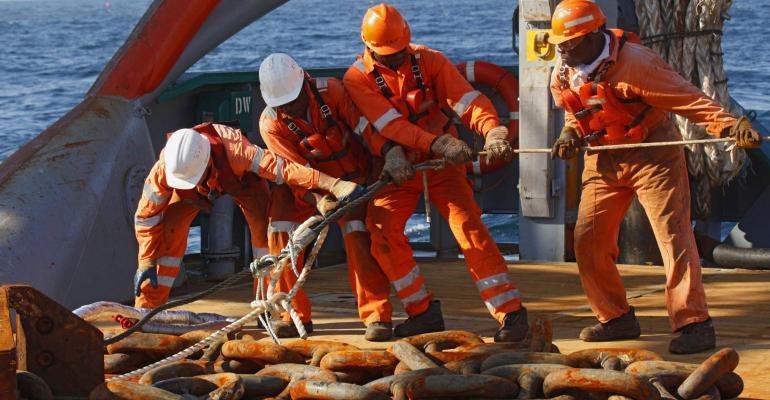The UN stated that internet access should be a basic right, yet Nautilus International found that 12% of seafarers have no access to the internet, and those who do have limited access at a high cost.
The survey conducted by Nautilus International showed that only 57% have access to satellite phone calls and personal emails. Fewer and fewer can go onto social media sites, read daily news sheets, use on-board GSM, watch TV, text, and only 6% have video calling facilities.
Video calling has become essential in maintaining long distance relationships between friends and family separated for various reasons. A study by Neustaedter and Greenberg (2011) found that video calling is a communication method specifically chosen for its sense of proximity. Being able to see and in some ways “hang out with” beloved ones allows an emotional connection that other communication channels (phone calls, texting) does not.
It would seem there is a great gap to fill by the industry, as only 6% of seafarers are able to see their friends and family while they are at sea. However, companies find that providing internet access to seafarers is costly and distracting the crew’s focus on their jobs. There are also concerns about downloads and streaming, both of which are expensive, and without the necessary security measures, internet access might put the seafarers’ safety at risk and expose the ship to cyberattacks.
When asked how companies should overcome these fears, Nautilus International spokesman suggested “the use of fair, balanced and sensible usage policies – which many crew are supportive of, and the best companies already have in place”.
The survey also found that being able to connect can also make seafaring more bearable (and attractive). However, there are personal risks in having internet access. Many seafarers experience distress due to the fear of missing out, and some in the industry are afraid that finding out bad news can be damaging to seafarers’ mental health, and believe that in some circumstances having no internet access might just be safer.
To this, Nautilus International spokesman commented; “It’s certainly not what the seafarers believe! The survey shows that they see access as a fundamental right. You could turn the argument around the other way: for young people, in particular, denial of connectivity will have very negative consequences for their psychological wellbeing and ability to be part of the wider community of friends and family ashore, let alone having access to training and information vital to their job.”
Access to connectivity is also a significant factor when seafarers choose places of employment. Both Nautilus International’s recent survey and Futurenautics’ Crew Connectivity survey from 2015 found that at least two thirds of seafarers consider internet access when looking for job opportunities.
“Crew want to speak to, or see their loved ones on video, as regularly and affordably as possible and the industry has the technology to make that a reality”, states the Futurenautics survey.
So how long before seafarers have the same internet access as they would on land?
“Very hard to say”, says a Nautilus spokesman. “It is clear that the situation is improving. Advances in technology and costs mean that access should be easier than ever. However, the survey shows that there are huge variations in the levels of access that seafarers currently have, and our campaign aims to give them the resources to take the case to employers for better provision.”

